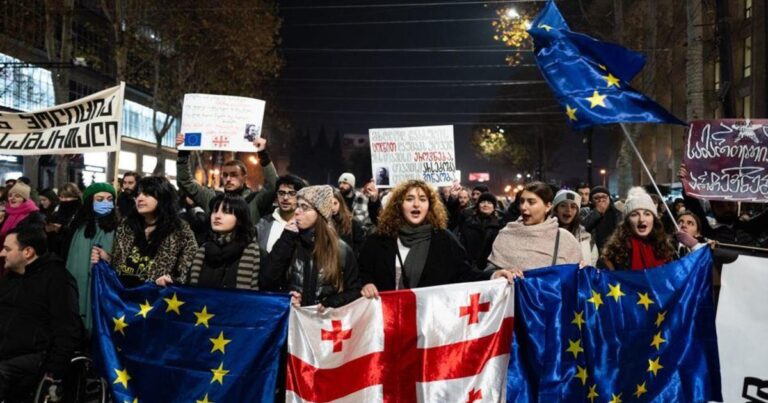

Speaking in Geneva, Matthias Schmale described the anguish felt by Ukrainians as the war grinds on: “As we are not only approaching winter but also the sad 1,000-day mark since the Russian Federation’s full-scale invasion in 2022, we are of course thinking of the more than 12,000 people who have been killed.”
“To date, civilian infrastructure has been decimated with over 2,000 attacks now on healthcare facilities and two million damaged homes.”
Almost four in 10 people in Ukraine need humanitarian assistance but one of the most pressing concerns is for people living in high-rise buildings who face their third consecutive freezing winter, because of “systematic attacks” on energy infrastructure.
Living without heat
“I am told that by now, 65 per cent of Ukraine’s own energy production capacity has been destroyed,” Mr. Schmale said. Where possible, UN aid teams and partners deliver solid fuel and warm clothing to vulnerable communities, but the situation is more precarious for the “huge number” of people living in apartment buildings.
“You can evidently not deliver a tonne of solid fuel to a high-rise building,” Mr. Schmale explained, adding that collective shelters in cities and towns that provide warm meals, a shower and a hot drink were welcome, but “not enough”.
One of the veteran humanitarian’s biggest concerns is if the Russian forces target the energy sector again, as the weather turns bitterly cold.
Mass displacement threat looms
“It could be a tipping point forcing further mass displacement both inside the country and outside the country,” Mr. Schmale warned. “So, this is not just about technical solutions, it’s about urging the international community to do its bit to stop this war.”
To date, the UN, national and international NGOs and volunteer organizations have reached 7.2 million people in Ukraine with at least one type of aid, thanks to the $1.8 billion received for the humanitarian response.
To prepare for winter and address the emergency needs of 1.8 million people until March by delivering solid fuel, ensuring water systems continue to work and by providing cash relief, the UN and partners require $500 million.
But the situation is dangerous on the frontline for communities and aid workers, nine of whom have been killed in the line of duty this year. Humanitarian facilities have also been damaged.
Drone terror
“Many people have told me on my visits that they feel civilians and civilian infrastructure and civil society are increasingly targeted by drone attacks; and drone attacks are terrible, I don’t need to describe that to you,” Mr. Schmale said, citing the testimonies of people describing being followed by drones.
“Some of this is also psychological terror, because…you never quite know, will they strike or are they just observing?”
Asked to assess how the new US administration might work to alleviate suffering in Ukraine, the UN aid coordinator highlighted the Secretary-General’s wish that the “significant” humanitarian support of the United States would continue. “They have been by far our biggest individual country supporter,” Mr. Schmale said.
“The hope is that they understand like the present administration that there are huge humanitarian needs that need to continue to be addressed.”
2024-11-15 12:00:00







